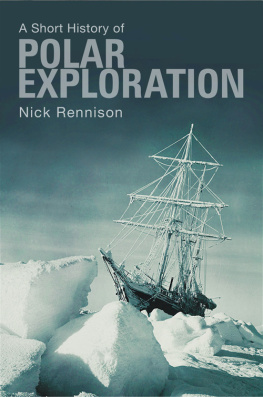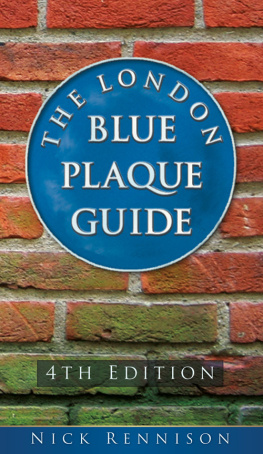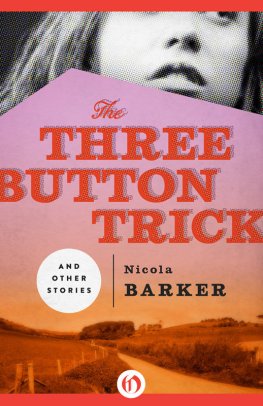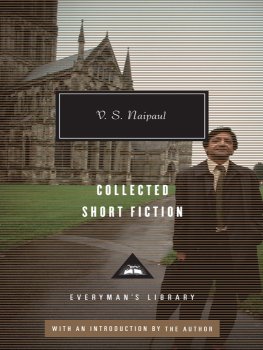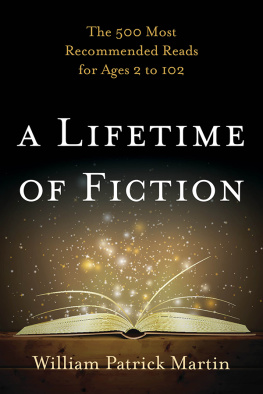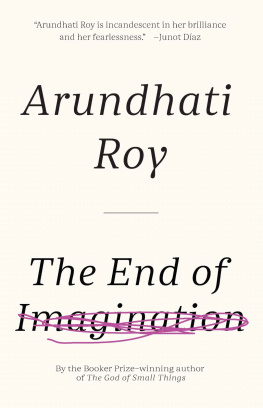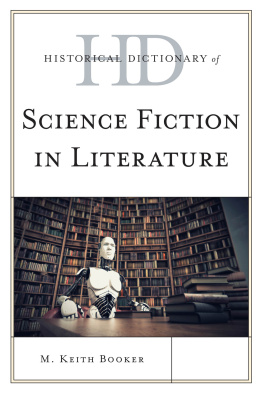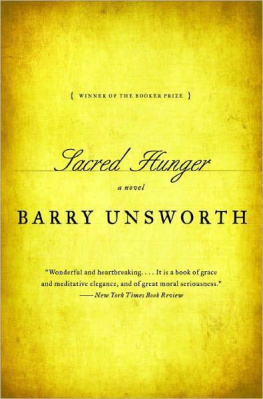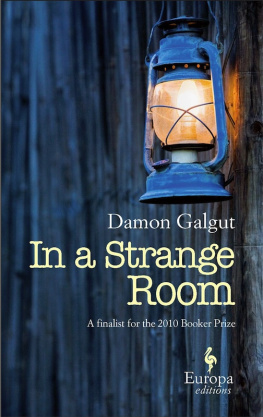BLOOMSBURY GOOD READING GUIDES
100 MUST-READ
PRIZE-WINNING
NOVELS
Nick Rennison

This electronic edition published in [2010] by Bloomsbury Publishing Plc
A & C Black Publishers Ltd
First published in 2010
A & C Black Publishers Ltd
36 Soho Square
London W1D 3QY
www.acblack.com
Copyright Nick Rennison 2010
Nick Rennison has asserted his rights under the Copyright, Designs and Patents Act, 1988, to be identified as the author of this work
All rights reserved
You may not copy, distribute, transmit, reproduce or otherwise make available this publication (or any part of it) in any form, or by any means (including without limitation electronic, digital, optical, mechanical, photocopying, printing, recording or otherwise), without the prior written permission of the publisher. Any person who does any unauthorised act in relation to this publication may be liable to criminal prosecution and civil claims for damages
A CIP catalogue record for this book is available from the British Library
eISBN: 978-1-40813-090-2
This book is sold subject to the condition that it shall not, by way of trade or otherwise, be lent, resold, hired out, or otherwise circulated in any form of binding or cover other than that in which it is published and without a similar condition, including this condition, being imposed on the subsequent purchaser.
Visit www.bloomsbury.com to find out more about our authors and their books You will find extracts, author interviews, author events and you can sign up for newsletters to be the first to hear about our latest releases and special offers
CONTENTS
This book is not intended to provide a list of the one hundred best novels ever to have been awarded a literary prize. Given the sheer range of literary awards, the variety of works of fiction which have won one or more of them and the unpredictability of individual taste, any such list is an impossibility. Instead I have chosen one hundred prize-winning books to read which I think will provide a wide-ranging introduction to the pleasures of contemporary fiction
Some literary prizes date back many decades the French Prix Goncourt, for instance, is more than a century old and the American Pulitzer Prize for Fiction has been around nearly as long but the kind of media coverage they now attract is a more recent phenomenon. For this reason I have chosen to make my choice from books that have won prizes in the last thirty years. All one hundred main entries are books that have been published since 1980.
The individual entries in the guide are arranged A to Z by author. They describe the chosen books as concisely as possible (while aiming to avoid too many spoilers) and say something briefly about the writer and his or her life and career. Significant film versions of the books (with dates of release) are noted where applicable, followed by Read on lists comprising books by the same author, books by stylistically similar writers or books on a theme relevant to the main entry. Scattered throughout the text there are also Read on a Theme menus which list between six and a dozen titles united by a common theme. These Readon a Theme lists also include only titles which have won some kind of prize. The Read on lists at the end of an author entry do include some titles which have remained unrewarded, although they are all, I hope, worth reading. The symbol before an author name indicates that the author is one of those covered in the A to Z entries.
Other books in this series cover crime fiction, science fiction and fantasy fiction and, for that reason, I have not included any novels in the main entries in this volume which have won prizes specifically related to those genres. I would have been happy to include more winners of prizes for fiction in languages other than English but too often in my research I discovered that these winners had either never been translated into English or, if they had, they had been allowed to slip out of print.
Literary prizes have been with us for a long time. There is an argument for saying that, as with so many aspects of human endeavour, the ancient Greeks got there first. What were the regular contests in which Greek poets declaimed their verse and competed for accolades but a type of literary prizegiving? Galloping swiftly through two millennia and more of history, it was in the nineteenth century that the literary prize arrived in something like a form we would recognise today. The wealthy patron was a creature of the past and writers were now only too happy to strive for the financial incentives that newspapers and magazines held out in the shape of monetary awards and competitions. Some survived almost exclusively on the money they won. Edgar Allan Poe, for instance, when he had no steadier source of income, made a living (although not much of one) out of prizes awarded by publications like the Baltimore Saturday Visiter and the Southern Literary Messenger for poems and short stories.
However, the modern era for literary prizes began with the granddaddy of all such awards the Nobel Prize. The inventor of dynamite, Alfred Nobel, died in 1896. Perhaps eager to make amends for a life spent creating weapons of death and destruction, Nobel left huge sums of money for the establishment of a series of prizes in different areas, including literature. The Nobel Prize in Literature was first awarded in 1901 to the now largely forgotten French poet Ren Sully-Prudhomme. Other prizes followed in the next twenty years the Prix Goncourt and the Prix Femina in France in 1903 and 1905, the Pulitzer Prizes in the USA in 1917. The first major prize in Britain which still survives, the James Tait Black Memorial Prize, was instituted in 1919. The first winner was Hugh Walpole, not now a name that would be at the top of anybodys list of great writers of the period, but the winners of the James Tait Black in its first decade did include the likes of D.H. Lawrence, Arnold Bennett and E.M. Forster.
Since the Second World War, and more especially in the last thirty years, there has been an explosion in the numbers of literary prizes awarded. The Booker (now Man Booker) Prize began in the late 1960s and, although it failed to ignite much enthusiasm in its early years, the decision to televise the awards ceremony in 1981, combined with a run of exciting and interesting winners, turned it into the institution it now is. The prize money now a whopping 50,000 helped to make it popular with the writers who won it if no one else. So did the increase in sales that winning the Booker could now guarantee. A work of literary fiction that would normally sell fewer than two thousand copies might now easily multiply its sales by a factor of one hundred or more. In Britain, the Booker was followed by the Whitbread (now the Costa) Awards in 1971 and, in the 1990s, by the Orange. Other prizes, smaller in terms of money and publicity, continued to proliferate. By the dawn of the new millennium, there were so many literary prizes that there were handbooks produced just to list them all for weary booksellers and librarians.
All of this begs the difficult questions. Apart from the lucky winners, who do they benefit? What use are literary prizes? Certainly they are not always handed out to those writers whom posterity later judges to have been most deserving. As critics of the big prizes have often pointed out in the past, judging panels often get it wrong. Take the Nobel as a prime example. Who now has heard of Henrik Pontoppidan or Erik Axel Karlfeldt? Of Frans Eemil Sillanp or Yasunari Kawabata? Yet all four men won the Nobel Prize in Literature. Which is more than can be said for Joseph Conrad, Henry James, Marcel Proust, F. Scott Fitzgerald, Virginia Woolf and Graham Greene who were all nominated for the Prize but failed to come up to the exacting standards of the committee of the Swedish Academy which hands it out. Look back at the list of winners of the Pulitzer Prize for Fiction (or the Pulitzer Prize for the Novel as it was until 1948).
Next page

